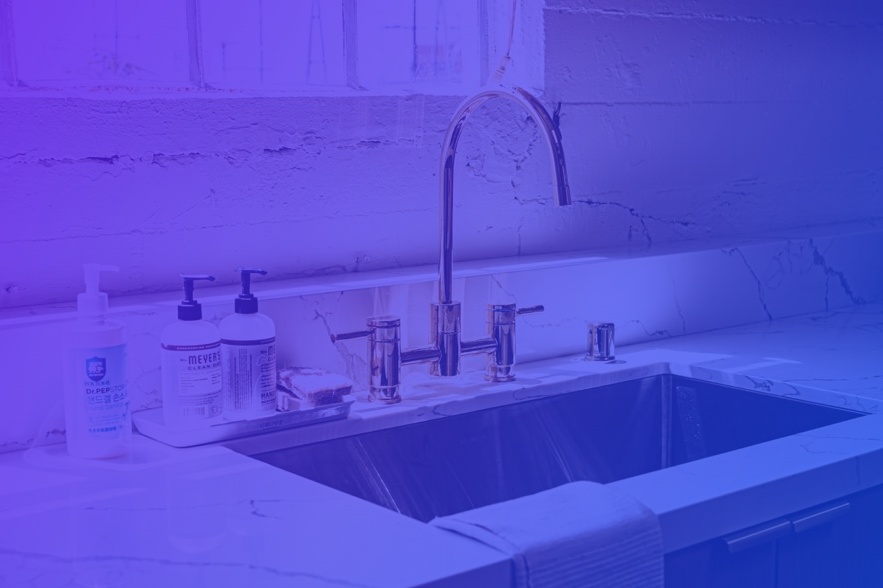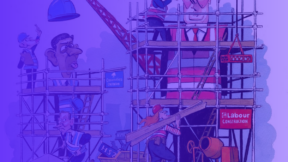Property Manager Guide: Blocked Drains

What is a Blocked Drain?
Plumbing is an integral part of a home. It takes the water and wastes out from your kitchen, bathroom, laundry room, attics, and outside plumbing pipes to the main sewer line. These plumbing pipes are referred to as drain pipes. Any kind of blockage in the way of the drain pipes is known as a blocked drain.
It takes quite a while for the blockage to build up in the drain pipes. Once the problem is started, it can show early signs and symptoms such as:
- Water accumulating in the sink, dishwasher, or the toilet
- Unexplained water spills in the garden
- Foul odours from the drain in the kitchen, bathroom, and gardens
- Slow draining of water and waste
- Low water pressure
- Debris and gunk coming out of fixtures
- Damp spots around the house
- High water bills
- Strange gurgling noises coming from the drains
Where Does a Blocked Drain Occur In The Property?
Blocked drains sometimes pose a serious threat to the foundations in a home by flooding and can occur in the following areas.
- Kitchen: Blocked drains can occur in your kitchen’s plumbing system in the sink, dishwasher and washing machine’s plumbing lines.
- Bathroom: Bathrooms are notorious for blocked drains and can occur in the toilets, bathtubs and sinks.
- Laundry room: Tumble dryers and washing machines in the laundry room are hot spots for blocked drains.
- Garage, Basement or Attic: Boiler installation in a garage, basement or attic needs condensate pipes to take waste away from the boiler and into a drain. That drain is susceptible to blockage. Blocked drains in the garage can cause flooding as well.
- Outside area: Outside drains collect waste and water from all the drains in your home. The accumulation of all that gunk results in outside blocked drains.
What Are The Causes?
Blocked drains start as a minor issue but develop into a severe one in no time and can cost you a lot of money in repairs. That is why it is necessary to know the causes of those blocked drains which can be any one of the following.
- Hair binds with sticky and greasy substances in the drains block them.
- Traditional soap bars leave hard residue in the pipes and block them.
- Any food waste (not only tea leaves and coffee grounds) doesn’t break easily and causes the drain to get blocked.
- Poor water quality such as hard water can cause mineral buildup in the plumbing pipes.
- Small objects and toilet paper buildup cause blocked drains quite often.
- Leaks in the underground plumbing system result in the growth of tree roots that can easily block any drain and cause flooding in the basement.
What Are The Remedies Available?
There are quite a few home remedies for blocked drains that can help you avoid costly repairs.
- Install drain guards to catch hair, pet hair, jewelry, or small pieces of soap and clean them regularly.
- To prevent blocked drains, dispose the cooking oils with non-recyclable waste, rather than pour into the sink.
- Use a plunger for sucking up toilet paper and waste to clear the toilet-blocked drain.
- Pour a combination of baking soda and vinegar, and leave it for 20 minutes. Afterward, pour boiling water to clear the blocked drain.
- Use chemical and biological drain cleaners to unblock a drain.
- For the outdoor drains – do clear all of the drains from the leaves before the start of every rain season/at the beginning of summer.
- Call for a professional plumber to clear the tree roots growing in the drain system.
- Check the external downspout around the house – they also may get blocked by leaves, especially if there are tall trees around. The clogged downspout might cause:
- Water spilling over gutters
- Basement flooding
- Sagging/collapsing gutters
Are there any legal implications?
The landlord doesn’t need to clear blocked drains. The tenant is generally responsible for clearing them up in the home. However, the tenant can inform the landlord if the general repairs are not helpful so that the landlord can take a look at the glitches in the main plumbing system to diagnose the blocked drains.
A tenant agreement may contain clauses that establish the landlord to be responsible for blocked drains if the landlord neglected the faults in the home’s plumbing system before renting it out. Any plumbing system damage (accessories and parts) or flooding in this regard is payable by the landlord.
However, if the tenant’s living style i.e. not taking care of minor household updates resulted in damage to the property from blocked drains, the landlord can hold the tenant responsible and can take legal action if the tenant is unwilling to pay for the repairs.
What To Consider As A Property Manager?
It is the job of a property manager to assess the home for any blocked drains before renting out space or during the tenancy. A property manager can do the following steps to safeguard tenants’ and landlords’ rights. Its also worth noting that as per most tenancy agreements, the responsibility to keep drains clear of blockages is the tenant’s responsibility.
- Step one is to ask the tenant to try and clear the blockage – using a drain unblocker etc.
- If the blockage is deeper, arrange for a drain specialist or plumber to attend.
- If it’s a bad blockage, most drain specialists will use a camera and it will be possible to establish what it was blocked with – for example, fat, wipes, sanitary products, or excessive toilet paper.
- A property manager has to assess whether its tenant liability or not.
- Present the facts to the landlord or the tenant for the approval of the costs and repair work.
Tenant Factsheet for Dealing with Blocked Drains
The tenant must maintain a healthy living standard so that a little annoyance such as a blocked drain doesn’t result in a major plumbing makeover. A tenant can:
- Prevent the drains from getting blocked by following the abovementioned recommendations.
- In case of a drain blockage, try to use a plunger
- Use professional remedies (like Mr Muscle Power Gel Drain Unblocker or Buster Kitchen Plughole Unblocker) to clear the drains
- Capture images and videos as evidence
- Notify the landlord or the property manager of persistent drain blockage and present the evidence to establish the person responsible for the repair works
Want your property management done right? Let’s talk!
Please, feel free to drop an email to sales@loftyworks.com or message us on WhatsApp at +44 330 321 3500 and we can show you how we can help.


